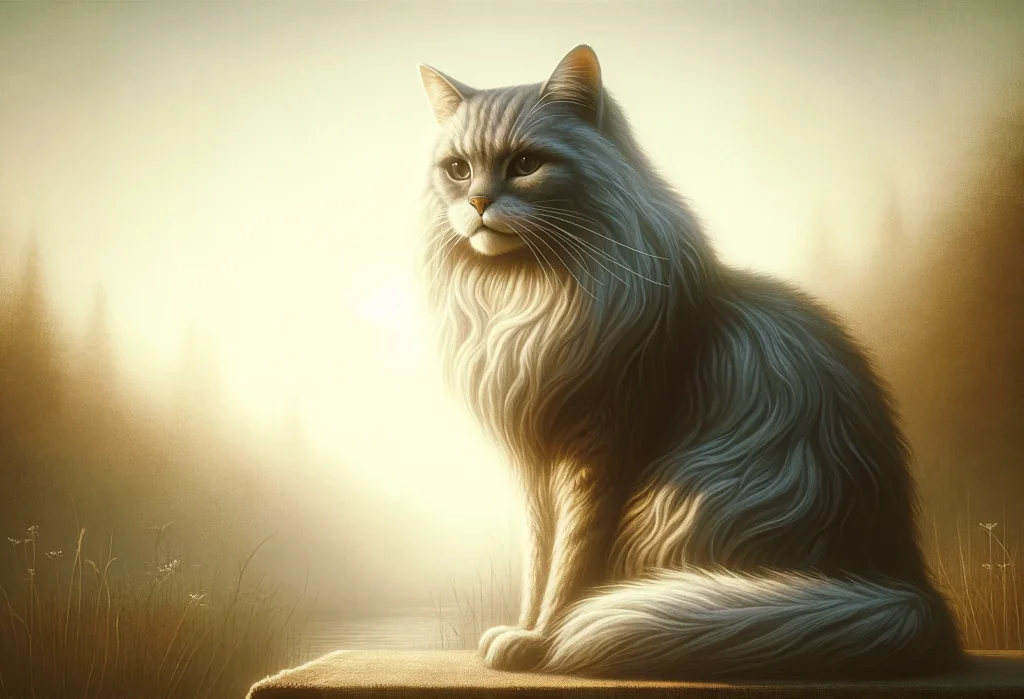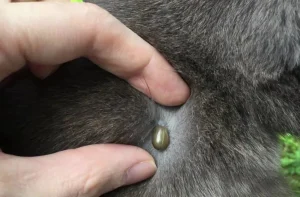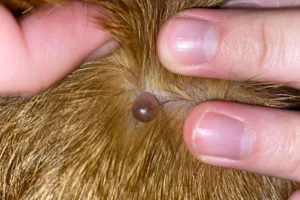Watching your feline friend grow older is like watching a well-loved clock tick into its golden years—familiar yet ever-changing. Suddenly, the cat that once raced around the house at the crack of dawn may prefer a more sedate lifestyle, basking in sunbeams and seeking quiet companionship.
In this post, you’re going to find out exactly how our senior whiskered companions might change as they age and, most importantly, what you can do to help them through their golden years comfortably and with grace.
Key takeaways:
- Adapt your home with senior-friendly amenities like low-sided litter boxes and cozy resting spots to ease your aging cat’s comfort.
- Keep your senior cat’s mind sharp with gentle play and new toys that cater to their reduced physical ability but stimulate their senses.
- Regular vet check-ups and a tailored diet are crucial for spotting and managing age-related changes in your cat’s health and behavior.
Is It Normal for Senior Cats to Change Their Behavior?
Absolutely, it’s quite normal for senior cats to show a variety of behavioral changes as they age. Just like humans, as cats get older, they undergo both physical and mental transformations. Some of the most common changes you might notice include:
- Decreased Activity: Older cats tend to slow down and may not leap or run as much as they used to. It’s their way of adapting to their changing physical condition.
- Increased Vocalization: Have you noticed your senior cat meowing more than they used to? This isn’t them being overly talkative for no reason; it can be a sign of confusion, discomfort, or even a way to seek more attention as they age.
- Altered Sleep Patterns: Just like elder humans can struggle with sleep, senior cats can too. They might sleep more during the day and become more restless at night.
Understanding these behaviors are a standard part of the aging process can help you empathize with your senior cat’s needs and make their golden years comfortable and fulfilling.
What Can You Do to Help Your Senior Cat Stay Comfortable?
Creating a living environment that caters to the needs of your aging furry friend is essential. Here are some actionable tips:
- Cozy Resting Spots: Senior cats cherish their nap times more than anything. Place soft, comfortable bedding in quiet corners to give them the perfect spot for a snooze. Consider a heated pet bed for added comfort, such as the Thermo-Kitty Bed, which can provide soothing warmth to those aging joints.
- Senior-Friendly Litter Boxes: Mobility issues can make it hard for senior cats to step into high-sided litter boxes. Swapping to a low-sided model can make all the difference and encourage your cat to use it without any discomfort.
- Maintain a Warm and Safe Environment: Older cats are more sensitive to cold temperatures and may find it challenging to navigate through clutter. Keep your home warm and ensure their favorite spots are easily accessible without having to jump or climb.
Remember, changes in behavior can also signal medical issues, so regular vet check-ups are crucial to keep your senior cat in top health.
How Can You Keep Your Senior Cat Mentally Stimulated?
Keeping your senior cat’s mind sharp is possible with a few simple interventions. Here are ideas to keep them mentally active:
- Simple New Toys: Introducing new toys that don’t require much physical exertion can stimulate their curiosity. Think about toys that appeal to their sense of smell or touch, like catnip-filled toys or ones that make interesting sounds.
- Encourage Gentle Play: Engage in light playtimes with toys that allow them to pounce gently. This not only keeps them active but strengthens your bond.
- Teach Them New Tricks: Believe it or not, you can teach an old cat new tricks. Using clicker training or offering treats for small achievements like giving a paw can keep their brain engaged. Opt for training sessions that respect their physical limits while challenging their minds.
One often overlooked strategy is creating a ‘sensory garden’ for your cat. It can be as simple as planting cat-safe grass or herbs for them to sniff and nibble on. This allows them to engage with nature and can be especially enriching for indoor cats.
Implementing these changes doesn’t require a complete overhaul of your life or home. Small, thoughtful adjustments can significantly enhance your senior cat’s quality of life, bringing you more precious moments together. Keep an eye out for more content focused on enriching the lives of our beloved senior pets.
What About Diet and Nutrition for Senior Cats?
As our feline friends enter their golden years, their dietary needs can undergo significant changes. The metabolism of senior cats slows down, and they may become less active, necessitating adjustments to their diet to maintain a healthy weight. The goal is to support their aging bodies, ensuring they remain healthy and vibrant for as long as possible.
First and foremost, a balanced diet tailored to the needs of senior cats is critical. This means food that’s not only high in nutrients but also easy to digest. Older cats’ digestive systems can become more sensitive with age, so easily digestible proteins and carbohydrates are a must. Foods formulated specifically for senior cats often address these needs, incorporating the right balance of nutrients while being gentler on the stomach.
Maintaining a healthy weight is paramount. Obesity in senior cats can lead to a host of health problems, including diabetes and joint issues, while underweight cats may have an underlying health problem that needs addressing. Regular weigh-ins can help you keep track, allowing adjustments to their diet or activity level as needed.
Some senior cats may benefit from supplements. However, this is something that should be discussed with a veterinarian, as they can recommend specific supplements like omega-3 fatty acids for joint health, antioxidants for cognitive function, or probiotics for digestive health, tailored to your cat’s specific health profile.
Here’s a gem not every pet owner thinks about: Hydration. Older cats are at a higher risk of kidney disease, and a key component in supporting kidney function is ensuring they stay properly hydrated. Many senior cats prefer running water to stagnant water found in a bowl, so investing in a cat water fountain might encourage them to drink more. This simple change can have a significant impact on their health.
When Should You Be Concerned About Your Senior Cat’s Behavior Change?
While it’s natural for senior cats to slow down a bit and perhaps become a bit more “set in their ways,” some behavior changes can be red flags indicating underlying health issues. Knowing what to watch for can ensure you get your beloved pet the help they need promptly.
Sudden disorientation or confusion can be a sign of cognitive decline, similar to dementia in humans, and warrants a vet visit. This could manifest as your cat appearing lost in familiar surroundings, having trouble finding their litter box, or showing unusual difficulty in navigating the house.
Drastic changes in appetite or water consumption should never be ignored. A significant increase or decrease in appetite can signal various health issues from dental pain to kidney disease. Similarly, drinking much more or much less water than usual can be symptomatic of health problems such as diabetes or urinary tract issues.
Significant shifts in litter box habits
– like going outside the litter box, drastic changes in the frequency of urination, or noticeable differences in feces – can indicate health issues. These might range from kidney problems to arthritis making it painful for them to climb into the box.
Unexplained weight loss or gain , despite no change in diet, is another concerning sign. Weight changes can be symptomatic of thyroid issues, diabetes, or even cancer, especially in senior cats.
Altered sleep-wake cycles , including more vocalization at night, can indicate cognitive dysfunction or be a response to pain or discomfort.
Here’s the unique insight: Changes in grooming behavior. Excessive grooming or a complete lack of grooming can be indicative of underlying issues. Over-grooming might be a response to pain or stress, whereas lack of grooming could indicate arthritis or other health issues making it difficult for your cat to reach certain areas.
In all cases, a proactive approach is best. Regular veterinary check-ups are crucial for aging cats, as they allow for early detection and management of potential health issues. Remember, our senior feline friends rely on us to be their advocates, ensuring their golden years are filled with comfort, love, and the best care we can provide.
Alex, a passionate animal lover, has experience in training and understanding animal behavior. As a proud pet parent to two dogs and three cats, he founded AnimalReport.net to share insights from animal experts and expand his knowledge of the animal kingdom.





